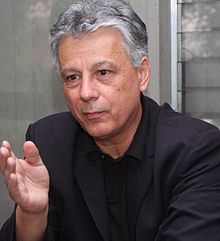Mircea Dinescu is a Romanian poet, journalist, and editor.
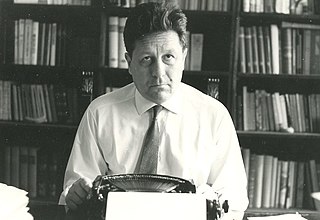
Eugen Barbu was a Romanian modern novelist, short story writer, journalist, and correspondent member of the Romanian Academy. The latter position was vehemently criticized by those who contended that he plagiarized in his novel Incognito and for the anti-Semitic campaigns he initiated in the newspapers Săptămâna and România Mare which he founded and led. He also founded, alongside his disciple Corneliu Vadim Tudor, the nationalist Greater Romania Party (PRM).
Dan Voiculescu, also known as "Varanul", lit. 'the Monitor lizard', or "Felix Voiculescu", is a Romanian politician and businessman. He is the founder and former president of the Romanian Humanist Party (PUR), later renamed the Conservative Party (PC). He was a senator from 2004 until his resignation in 2012.
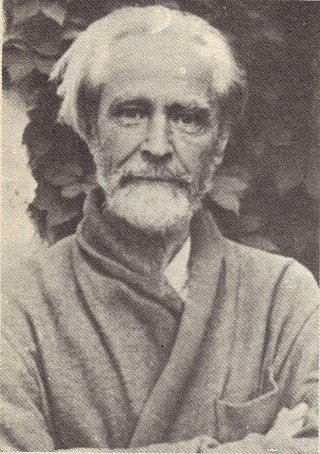
Vasile Voiculescu was a Romanian poet, short-story writer, playwright, and physician.
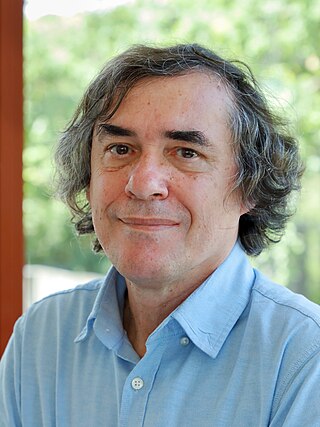
Mircea Cărtărescu is a Romanian novelist, poet, short-story writer, literary critic, and essayist.
Paul Goma was a Romanian writer, known for his activities as a dissident and leading opponent of the communist regime before 1989. Forced into exile by the communist authorities, he became a political refugee and resided in France as a stateless person. After 2000, Goma expressed opinions on World War II, the Holocaust in Romania and the Jews, claims which have led to widespread allegations of antisemitism.
Vladimir Tismăneanu is a Romanian American political scientist, political analyst, sociologist, and professor at the University of Maryland, College Park. A specialist in political systems and comparative politics, he is director of the University of Maryland's Center for the Study of Post-Communist Societies, having served as chairman of the editorial committee (2004–2008) and editor (1998–2004) of the East European Politics and Societies academic review. Over the years, Tismăneanu has been a contributor to several periodicals, including Studia Politica, Journal of Democracy, Sfera Politicii, Revista 22, Evenimentul Zilei, Idei în Dialog and Cotidianul. He has also worked with the international radio stations Radio Free Europe and Deutsche Welle, and authored programs for the Romanian Television Company. As of 2009, he is Academic Council Chairman of the Institute for People's Studies, a think tank of the Romanian Democratic Liberal Party. Between February 2010 and May 2012, he was also President of the Scientific Council of the Institute for the Investigation of Communist Crimes in Romania.

Doina Ruști is a Romanian writer and novelist.

Geo Bogza was a Romanian avant-garde theorist, poet, and journalist, known for his left-wing and communist political convictions. As a young man in the interwar period, he was known as a rebel and was one of the most influential Romanian Surrealists. Several of his controversial poems twice led to his imprisonment on grounds of obscenity, and saw him partake in the conflict between young and old Romanian writers, as well as in the confrontation between the avant-garde and the far right. At a later stage, Bogza won acclaim for his many and accomplished reportage pieces, being one of the first to cultivate the genre in Romanian literature, and using it as a venue for social criticism.

Leonte Tismăneanu was a Romanian communist activist and propagandist.
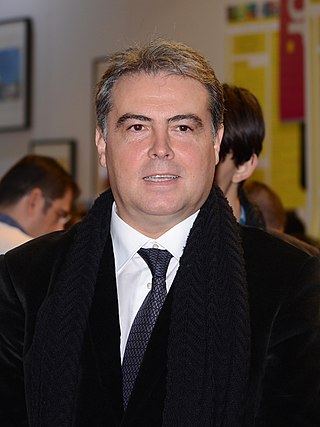
Adrian Mihai Cioroianu is a Romanian historian, politician, journalist, and essayist. A lecturer for the History Department at the University of Bucharest, he is the author of several books dealing with Romanian history. He is also noted for his contribution as co-author of a high school textbook.
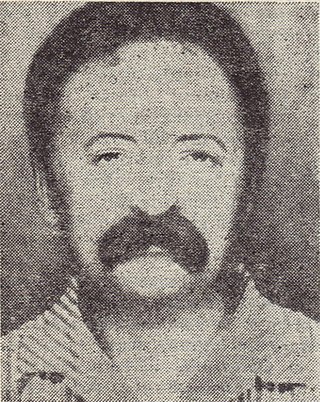
Leonid Dimov was a Romanian postmodernist poet and translator. He was one of the main representatives of onirism in Romanian poetry, explorer of the dream as an absolute, objective reality.
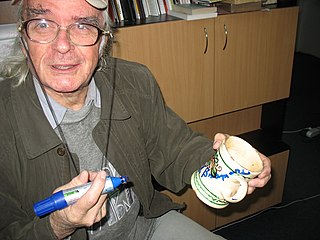
Emil Brumaru was a Romanian writer and poet. He was renowned for his erotic poetry.

Șerban Nicolae Foarță is a contemporary Romanian writer. A translator, essayist, playwright, prose writer and even illustrator, he is most widely known for his poetry books.

Vasile Patilineț was a Romanian communist activist, politician and diplomat. A worker and native of the industrial Jiu Valley, he joined the Romanian Communist Party in 1945 and steadily rose through its ranks, entering the central committee a decade later. Subsequently, he became a close ally of Nicolae Ceaușescu, whose rise to power in 1965 he helped facilitate. A significant player in the early years of the latter's rule, he became steadily alarmed by the dictator's excesses and began plotting against him by the late 1970s. He was sent as ambassador to Turkey in 1980, and six years later, upon finishing his service at Ankara, was killed in a suspicious car accident.

Barbu Solacolu was a Romanian poet, translator, civil servant and social scientist. Born into a prosperous and intellectual family, he became a late affiliate of the Symbolist movement, bringing to it his own leftist sympathies and agrarianism. Despite spending the early stages of World War I among non-interventionists such as Alexandru Bogdan-Pitești and Ioan Slavici, he eventually servd with distinctions as a cavalry commander, and also participated in the Hungarian–Romanian War. Solacolu trained as an economist in Weimar Germany, returning to serve the Romanian state as a civil servant. He had a marginal presence in national politics, first with the Democratic Nationalist Party, as a disciple of Nicolae Iorga, and then as a leading member of the Agrarian Union Party. He was noted in local academia for his essays on Revisionist Marxism.

Dan Botta was a Romanian poet and essayist.
Events from the year 1948 in Romania. The year saw the formalisation of the Romanian People's Republic.
Mihai Horia Botez was a Romanian mathematician and dissident, nicknamed "Romania's Sakharov" by the international press. A leading statistician, he played a key role in founding the study of futurology in the Eastern European country, before becoming a critic of the communist regime's catastrophic economic policies. He survived four suspicious attacks, including a stabbing, a car ramming, and a beating that left him hospitalized and which human rights groups blamed on the country's secret police, the Securitate.
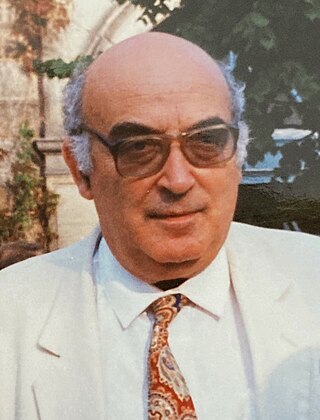
Iosif Sava-Segal, known as Iosif Sava, was a Romanian musicologist and pianist. He was particularly renowned for his decades-long live radio and television shows during which he invited famous personalities from different realms of Romanian culture to discuss their perspectives of the cultural phenomenon.
